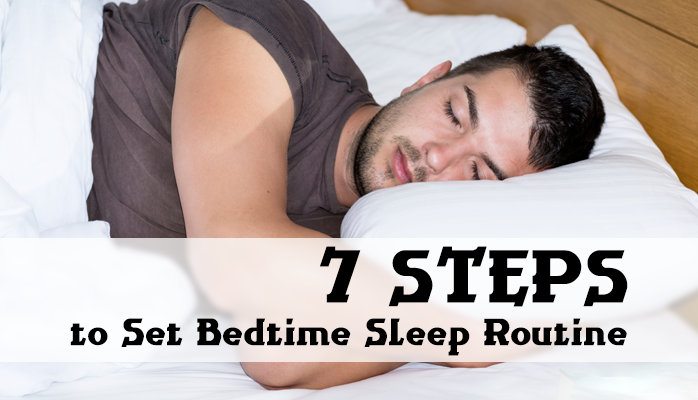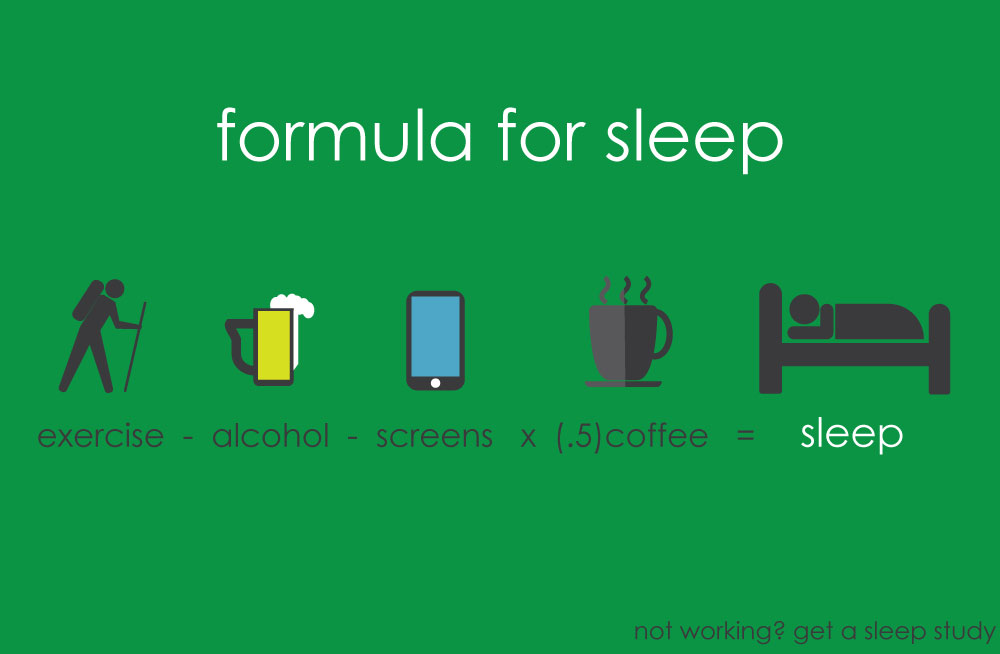Having a bedtime routine is key to getting consistent nights of quality sleep. By improve your bedtime routine habits, you may be able to replace sleep medicine, reduce the burden of sleeping disorders, and improve the overall quality of your life. Without a consistent routine, you may be getting insufficient sleep and begin to suffer from the effects of sleep deprivation:
- Lower quality of life
- Poor eating/drinking habits (i.e., energy drinks, more coffee, etc.)
- Decreased performance
Sleep deprivation is often followed by binge sleeping, which feels good but tends to perpetuate the sleep deprivation cycle. Here are seven necessary steps to set a bedtime sleep routine and schedule.
1. Create a good sleep environment
Creating a good sleep environment is an important aspect of creating a good sleep routine. The optimal sleeping environment is dark, quiet, cold and clean. Depending on your environment, meeting these three conditions may be a bit tricky, and may require extra steps, such as:
- Using earplugs to block outside noise
- Blocking outside lights with blackout curtains, especially during Alaskan summers
- Remove smells or other environmental distractions that may prevent you from peacefully falling asleep
2. Spend money on important sleep accessories
Sleep assets are the items that aid you in feeling comfortable and in love with being in your bed. Although major changes, like a whole new mattress, can be wildly expensive, there are less expensive additions that can make your space exactly what you need it to be:
- A good mattress and/or topper
- A comfortable pillow(s) for your head and, often, between your legs
- Good quality sheets
- A comforter that’s in good condition
Don’t worry if you don’t have the budget for a new mattress. A couple hundred dollars can go a long way in getting a nice memory foam topper and excellent pillow.
3. Change Diet/Drink Habits As Needed
You may not realize it, but drinking habits affect your bedtime and sleep schedule. Various beverages impact our bodies in ways that can actually be disruptive to sleep. Therefore, making appropriate changes is KEY to improving your sleep health. Some of these changes can include:
- Avoiding alcohol right before bed as alcohol prevents the onset of REM sleep
- Decreasing coffee intake due to the effects of caffeine on wakefulness
- Drinking coffee exclusively in the early hours of the day
- Limiting liquids directly before bed
Changing some of these habits can be extremely challenging, especially if they are longstanding. However, once you feel the effects of a good sleep schedule, you will realize how vital those changes actually were.
4. Choose Activity to Do Before Bed
Consistency is key for creating an effective routine. Completing a set of relaxing, sleep-inducing activities, everyday, in the same order conditions your brain to prepare for bed once you begin those activities. It's the same principle in the famous Pavlov's dogs study where he rang a bell before delivering food, conditioning his dogs to expect food once they heard the bell.
A routine will have a similar effect, inducing the release of melatonin as your brain recognizes these bedtime cues. Some examples of activities to include in your routine are:
- Taking a hot bath
- Reading
- Listening to a book, podcast, etc.
- Meditating
- Journal writing
You can customize these activities so they are things that provide you with a sense of relaxation. There ae, however, a couple of activities that can actually take away from your ability to sleep, and should be avoided in the pre-bed routine:
- Using screens
- Working out
- Drinking alcohol or caffeinated beverages
5. Set a No-Screen Rule In Bed
Screens emit a blue light that interferes with the release of melatonin. Melatonin is important because it is the sleep hormone. It induces the feeling of sleepiness and begins to shut down physiological processes that may, otherwise, keep the body too active throughout the night. Screens are everywhere, which can make it more challenging to avoid them. However, by creating a no screen rule in your bed, you may be able to reduce the amount of blue light exposure before bed.
Aside from the impact of blue light, technology is designed to be addictive and hard to put away. Therefore, the amount of videos and posts that you could consume could significantly reduce the amount of sleep that you are getting. Books at least are broken into chapters, or articles end, but social media is designed for endless scrolling. Avoid this temptation altogether by banning screens from the bed so you can get the proper amount of sleep.
6. Set a Realistic Bedtime
Bedtimes are not just for children, they are for everyone. A consistent bedtime that you follow everyday is key to helping you get the right amount of sleep on a nightly basis. Without this consistency, you may find yourself going to bed at various times, which may result in you getting less sleep than what is recommended. By creating a bedtime, you set a boundary for yourself, work, and family so you can prioritize sleep.
When creating a bedtime, however, it should be realistic. Think about your life circumstances and what time would really work for you to get into bed. If you have a full family, then having an earlier bedtime may not be realistic. Also consider your sleeping patterns. If you are a night owl, then setting an early bedtime may, also, not be realistic.
7. Make Sleep a Priority
This was previously mentioned in the last section, but it's vital that you make sleep a priority. So often, sleep is viewed as a luxury. However, it's actually a requirement for our overall functioning and wellbeing. Without it, our bodies begin to decompensate, our mood and productivity falter, and the effects can be distributed widely throughout our lives. Therefore, we have to commit to a regular sleep schedule and make it a priority. Put your wind down time in your planner or schedule. Block out your bedtime so nothing else is scheduled. Make sleep a priority as a household so everyone falls in line with the same schedule.
What if You Just Can't Sleep?
Occasionally, all the tricks in the world don't help someone get to sleep. This may be due to an underlying, untreated sleep disorder, like:
- Sleep apnea
- Insomnia
- Restless leg syndrome
- Circadian rhythm disorders
If you have tried everything, but still struggle with getting a good night's sleep, and you live in Alaska then please contact us by clicking the orange button and taking this free online sleep test.



